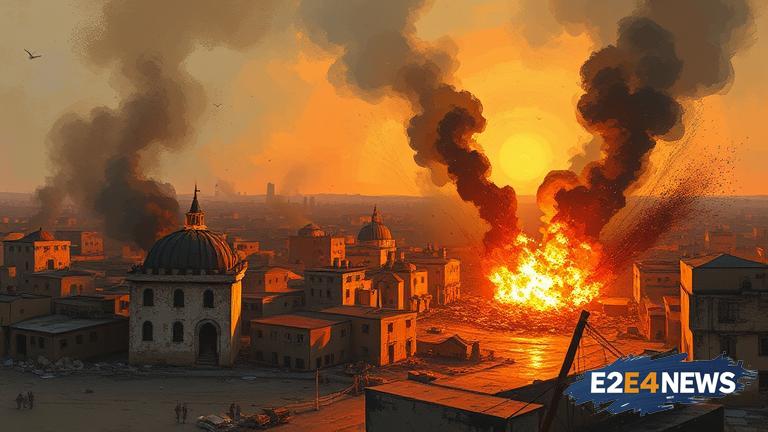The Gaza Strip, a region located on the eastern coast of the Mediterranean Sea, is currently facing a severe humanitarian crisis. Every day, residents of the Gaza Strip wake up to a new catastrophe, whether it be a lack of access to basic necessities like food, water, and electricity, or the constant threat of violence and conflict. The region has been under a blockade by Israel and Egypt since 2007, which has severely limited the movement of people and goods. This has led to a significant decline in the standard of living for the residents of the Gaza Strip, with many struggling to access basic necessities. The blockade has also had a devastating impact on the economy, with high levels of unemployment and poverty. The situation is further exacerbated by the lack of access to healthcare, with many residents unable to receive the medical treatment they need. The Gaza Strip is also facing a severe water crisis, with many residents lacking access to clean drinking water. The region’s infrastructure is also in a state of disrepair, with many buildings and homes damaged or destroyed due to conflict. The psychological toll of living in a constant state of crisis is also taking a significant impact on the residents of the Gaza Strip, with many experiencing anxiety, depression, and post-traumatic stress disorder. Despite the challenges, many residents of the Gaza Strip are working to rebuild and improve their community, with initiatives such as gardening and recycling programs. However, the situation remains dire, and international attention and aid are needed to address the crisis. The international community has called for an end to the blockade and for increased access to humanitarian aid. The United States, in particular, has been criticized for its role in the crisis, with many arguing that its support for Israel has contributed to the situation. The European Union has also been involved in efforts to address the crisis, with many of its member states providing humanitarian aid to the region. Overall, the situation in the Gaza Strip is complex and multifaceted, and will require a sustained and coordinated effort to resolve. The residents of the Gaza Strip deserve to live in dignity and safety, and it is the responsibility of the international community to ensure that their basic human rights are respected. The crisis in the Gaza Strip is a stark reminder of the need for peace and stability in the region, and the importance of addressing the root causes of conflict. By working together, it is possible to create a brighter future for the residents of the Gaza Strip, and to bring an end to the daily catastrophes that they face.
